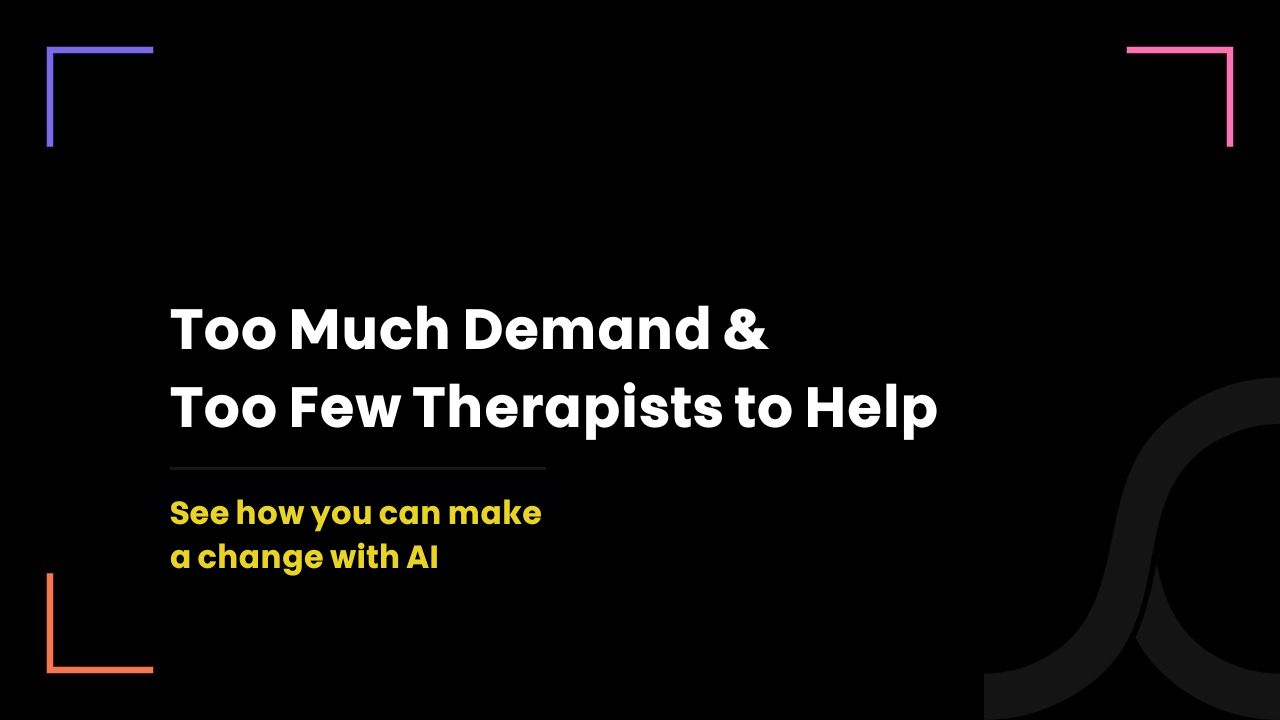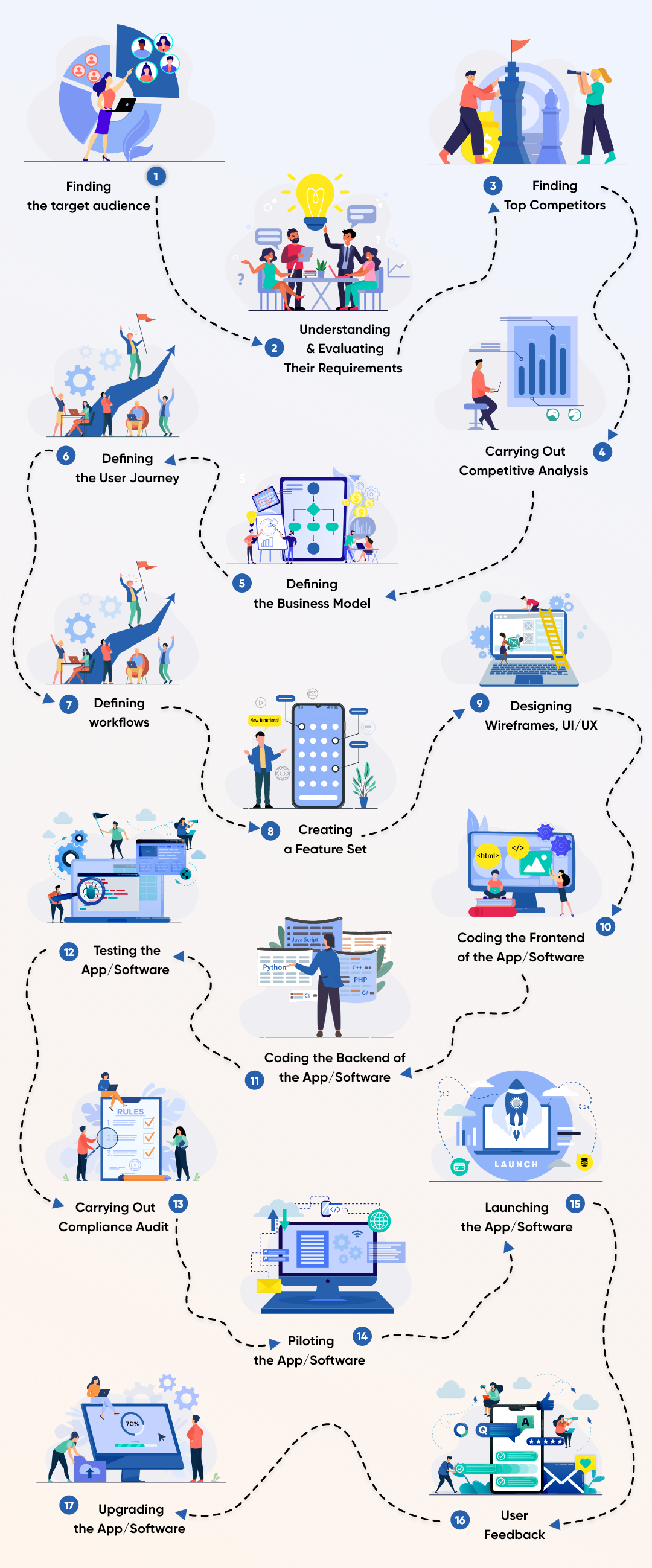Clinical AI Assistant for Mental Health Clinicians: 10x More Efficient

9 months ago
AI will change the healthcare industry in various ways.
But most notably the mental health sector.
AI has a big potential impact on mental health.
According to BCC Research, the market will expand at a 34.3% annual rate over the following five years, with a projected value of $3.8 billion by 2027.
This enormous number represents a sector of the economy that is becoming more and more well-known for its efforts to enhance the health and wellbeing of people everywhere.
How Can AI Help with Mental Health?
AI for mental health care is gaining a foothold across clinical practice, already now. In particular, the following technologies have the most potential for an impact:
1. Machine learning (ML) and deep learning (DL) are more accurate in detecting mental health disorders and forecasting patient outcomes.
2. Computer vision for analyzing imaging data and comprehending nonverbal signs, such as facial expressions, gestures, eye gazing, or human stance
3. Natural language processing (NLP) for speech recognition and text analysis is used to simulate human conversations via chatbot computer programs, as well as to create and comprehend clinical documentation.
Top 5 Companies in AI for Mental Health

Ginger, a California-based firm, combined with Headspace in 2021 to create one of the world's most comprehensive and accessible mental health platforms.
Their solutions include apps for both companies and members that help users diagnose and improve their mental health.

Lyra Health is another California-based company and purveyor of a mental health app.
The company aims to be flexible and convenient, providing personalized mental health services that are accessible to the whole family.

Meru provides its own mental health app, with the goal of achieving long-term positive outcomes for its customers.
Meru reports that 73% of their users experience clinically meaningful improvement, making the platform more successful than traditional mental health care and more scalable than telehealth.

Quartet Health employs AI to develop individualized health plans for its customers.
Patients' doctors then collaborate with Quartet to identify nearby mental health professionals who can prescribe telemedicine CBT treatments to them.

Talkspace offers online therapy for individuals and couples, and they have recently launched a self-guided app.
This suite focuses on enhancing emotional intelligence (EQ) and mental health at work.
Benefits of AI for Mental Health Clinicians
1. Mental Health Analysis
Nowadays, artificial intelligence is used to evaluate electronic health data (together with blood tests and brain imaging), questionnaires, voice recordings, behavioral indications, and even information obtained from a patient's social media accounts.
AI analyzes patient data to determine the likelihood of developing mental health issues, diagnose diseases, and optimize treatment approaches.
2. Self-assessment & Therapy Sessions
This category is primarily populated by keyword-triggered and NLP chatbots.
They provide advice, monitor the user's responses, assess the course and severity of a mental disease, and assist in dealing with its symptoms — either autonomously or with the assistance of a trained psychiatrist waiting on the other end of the virtual line.
3. Patient Engagement
Aside from assisting users in dealing with their mental health issues, AI chatbots are also utilized to make access to care as simple and seamless as it is in many other service industries.
Healthcare companies use conversational AI to process phone calls, schedule appointments, provide patients with directions to their providers, and deliver health education.
4. Workflow Automation
AI can help improve many other day-to-day processes in healthcare organizations.
Examples include completing paperwork, organizing EHRs to make it easier to find clinical information, and processing clinical papers.

Benefits Beyond Efficiency
The impact of AI assistants goes beyond just saving time. They can:
- Reduce clinician burnout: Imagine a lighter workload and more time for patient interaction. AI assistants can significantly reduce stress and improve job satisfaction.
- Improve patient access to care: By streamlining administrative tasks, clinicians can see more patients, reducing wait times and improving access to mental healthcare.
Want an AI Assistant for Your Clinic: 2 Options You Have

Every clinic or enterprise has unique requirements, which depend on their workflow, size, operation and budget.
1. Custom-build Software
It is the process of designing, building, testing, and deploying software that is tailored to your individual user base, procedures, and business requirements.
It focuses on defined requirements and allows you to gain a competitive advantage by meeting your specific business needs.
A custom software development company will design and build it for you from scratch.
Pros
- Fully compatible with your business
- Scales with your growth
- Strong security features
- No hidden licensing costs
- Own the software and IP
- Total control over customization
Cons
- Initial cost is high
- Developing time is higher
2. 3rd Party Software
Standardized and generic applications designed for the mass market.
These applications are pre-packaged with a variety of generic features and cannot be tailored to a clinic's specific needs.
Pros
- Quick installation and use
- Low upfront costs
Cons
- Doesn't meet all business needs
- Extra costs for customization
- Unnecessary features included
- Missing essential features
- Rigid and hard to modify
- Limited integration options
Choosing a 3rd party model comes with a number of limitations.
Therefore we would like to suggest you build custom software which is flexible with your requirements. For more information, consult with SyS Creations.
Our Process of Clinical AI Tool Development: SyS Creations
We’re an Ontario-based healthcare-focused IT company.
Our team includes 50+ dedicated healthcare app developers, UI/UX designers, business analysts, compliance specialists, and QA engineers who understand your requirements and deliver the finest solution.
To further help you understand the efforts put into building epic products, here we are sharing our entire 17-step process.

Power Up Your Practice with SyS Creations' Clinical AI Assistant
We have powerful ideas ready.
All you have to do is contact our team, and they will assist you with your requirements.
Our tools are built by a team of therapists, physicians, and tech experts in the field of computational psychiatry who are committed to patient safety, clinical accuracy, and scientific rigor.
For more than 10 years, we've exclusively been working on healthcare and providing AI-driven support at every step.
Whether you’re just starting out with your practice or are part of a larger organization, we've got the right tech solution for you.
So you can count on us.
Start, run, and grow your practice with SyS Creations.
